6 Popular Supplements That Don’t Actually Work, According to Experts
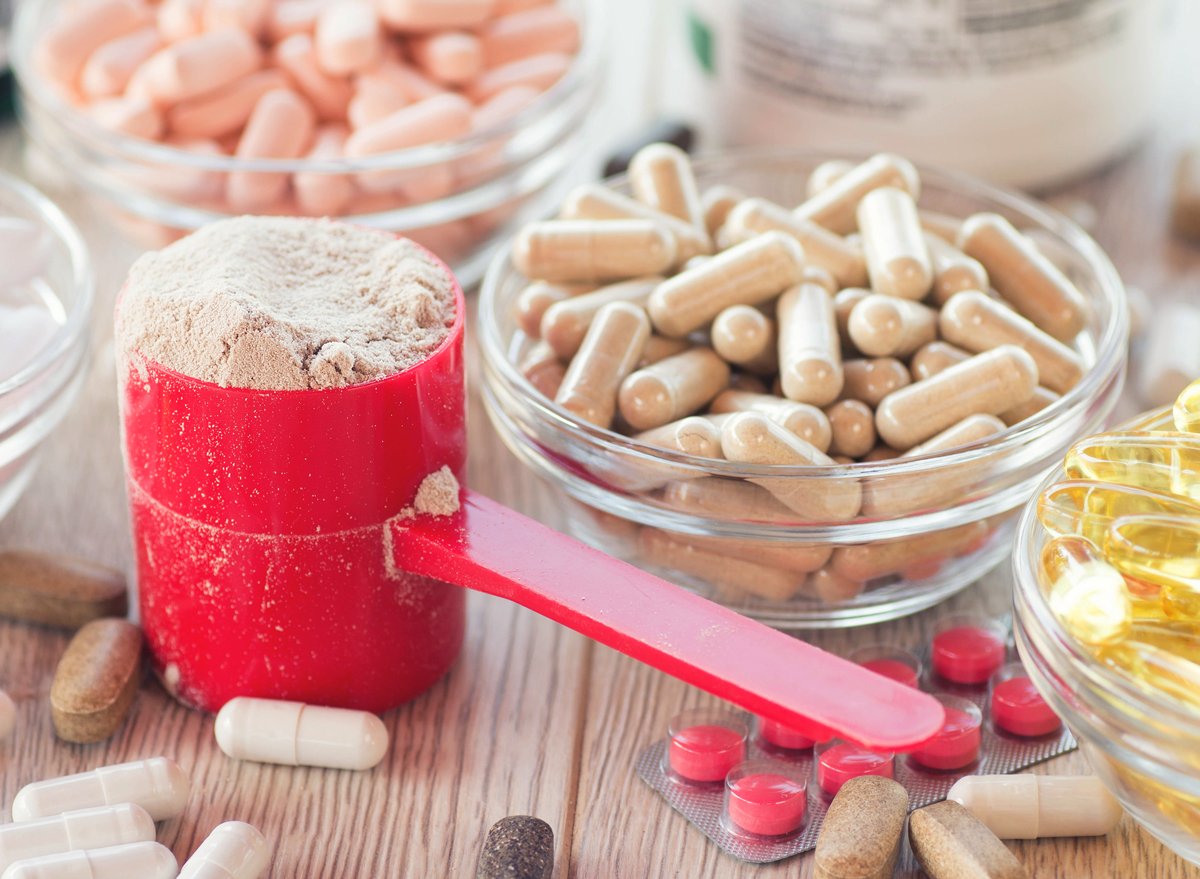
The supplement industry is like the wild west of food products. With little regulation and barely any oversight by the U.S. Food and Drug Administration (FDA), supplement companies operate with free reign on the quality, sources, and claims of their products. Paired with their popularity (3 out of every 4 Americans take supplements on a regular basis) and the size of the industry (worth $40 billion), it’s no surprise that there’s a lot of misinformation about supplements that may lead to consumers investing in products that either don’t do what they claim or that may actually be dangerous.
“Unlike food products which are regulated by the FDA, supplements go through what’s called ‘post-market approval.’ Anyone can legally make and sell supplements without a single clinical trial, without having to prove that what is on the label is actually in the product, and without having to do any background checks as far as the sanitation or cross-contamination of their facilities,” says Angie Asche, MS, RD, CSSD, sports dietitian, and owner of Eleat Sports Nutrition.
But despite the lack of transparency in the supplement industry, consumers still invest in these products. The top reason U.S. adults take dietary supplements is for overall health and wellness benefits; however, you can’t rely on these products to solve all your health woes.
“There is no ‘magic pill’ and oftentimes the risks of taking supplements outweigh the benefits,” says Asche. “Supplements are simply meant to do just that, supplement the diet, not be a complete replacement for whole foods,” she adds.
In our pursuit of self-improvement and fixation on the purported benefits of these pills and powders, we may overlook the fact that not all products are high quality or safe.
“Supplements can contain ingredients in varying amounts than what is actually listed on the label, and may or may not contain ingredients that aren’t on the label,” says Asche, adding that “purchasing products that are third party tested is crucial to ensure safety and efficacy”
“Always be sure to use third-party tested and certified products (for example NSF Certified for Sport, Informed-Sport, USP verified), and if a supplement claim sounds too good to be true, it probably is,” says Asche.
If you do decide to take a supplement or if you already do, it’s well worth your time to do some due diligence before you pop a pill. (Asche also notes that if you’re considering taking a supplement, it’s always best to consult with a registered dietitian, who can help you determine if and how you can obtain these nutrients from whole food sources.)
To help you make a more informed decision, we asked registered dietitians for their help in determining which supplements won’t actually work. They warn of these 6 ineffective (and sometimes dangerous) examples. Read on, and for more on healthy eating, don’t miss 7 Healthiest Foods to Eat Right Now.
Apple Cider Vinegar Gummies
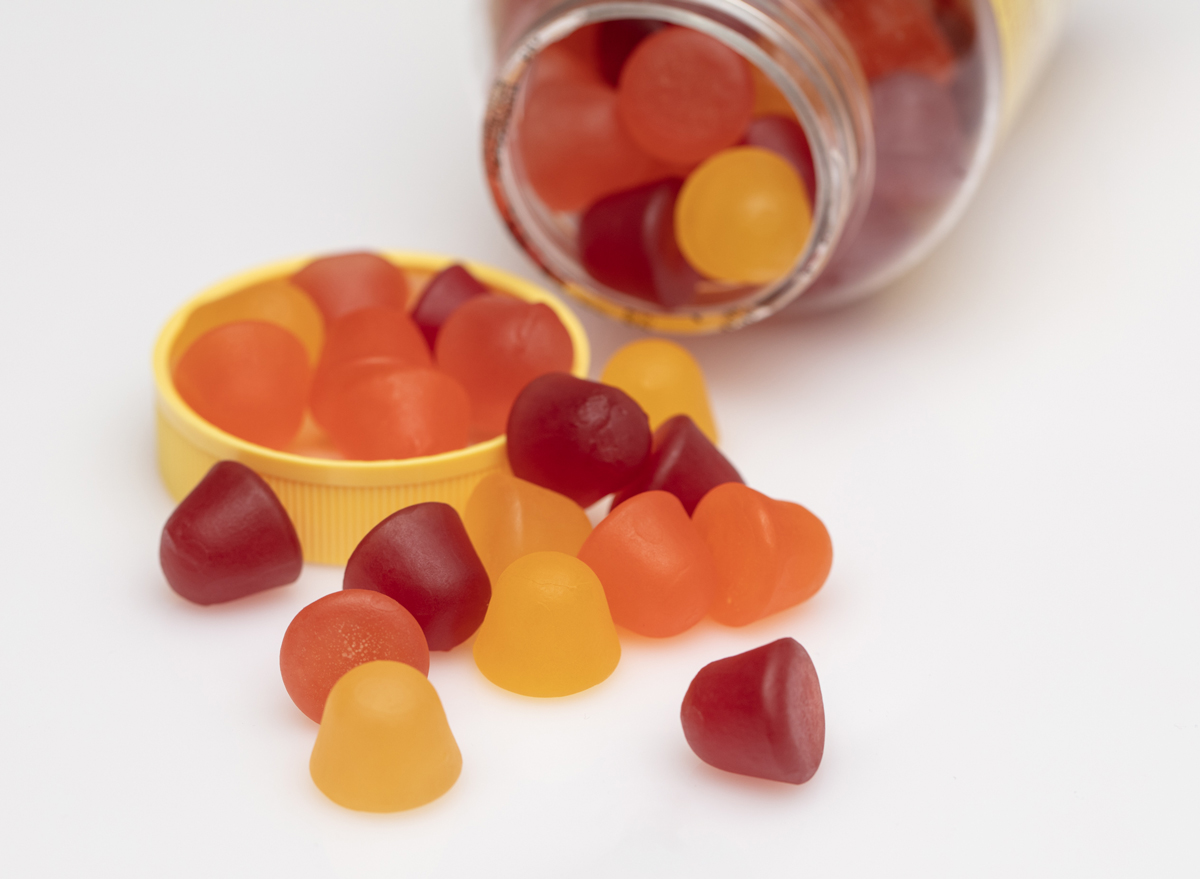
“Apple Cider Vinegar (ACV) gummies claim to ‘reduce appetite, support gut health, bolster immunity,’ but don’t actually have any evidence to support those claims,” says Asche. “This is a perfect example of supplement companies’ cherry-picking limited studies on one of the ingredients used in their product, and claiming their product must do the same.”
“Just because a supplement contains very small amounts of a certain ingredient that may be shown in limited studies to provide some health benefit, that does not mean their supplement is as effective, if at all. How much apple cider vinegar are you actually getting in those gummies? What is the absorption rate? Do they have any clinical trials to back these claims? What about their third-party testing to verify that what’s on the label is what’s actually in the product?” says Asche.
If you’re looking to reduce appetite and support gut health, “the answer is not in a gummy,” she says. “You’d be much better off using apple cider vinegar to make your own salad dressing, or eating whole apples which are rich in fiber.”
Vitamin E
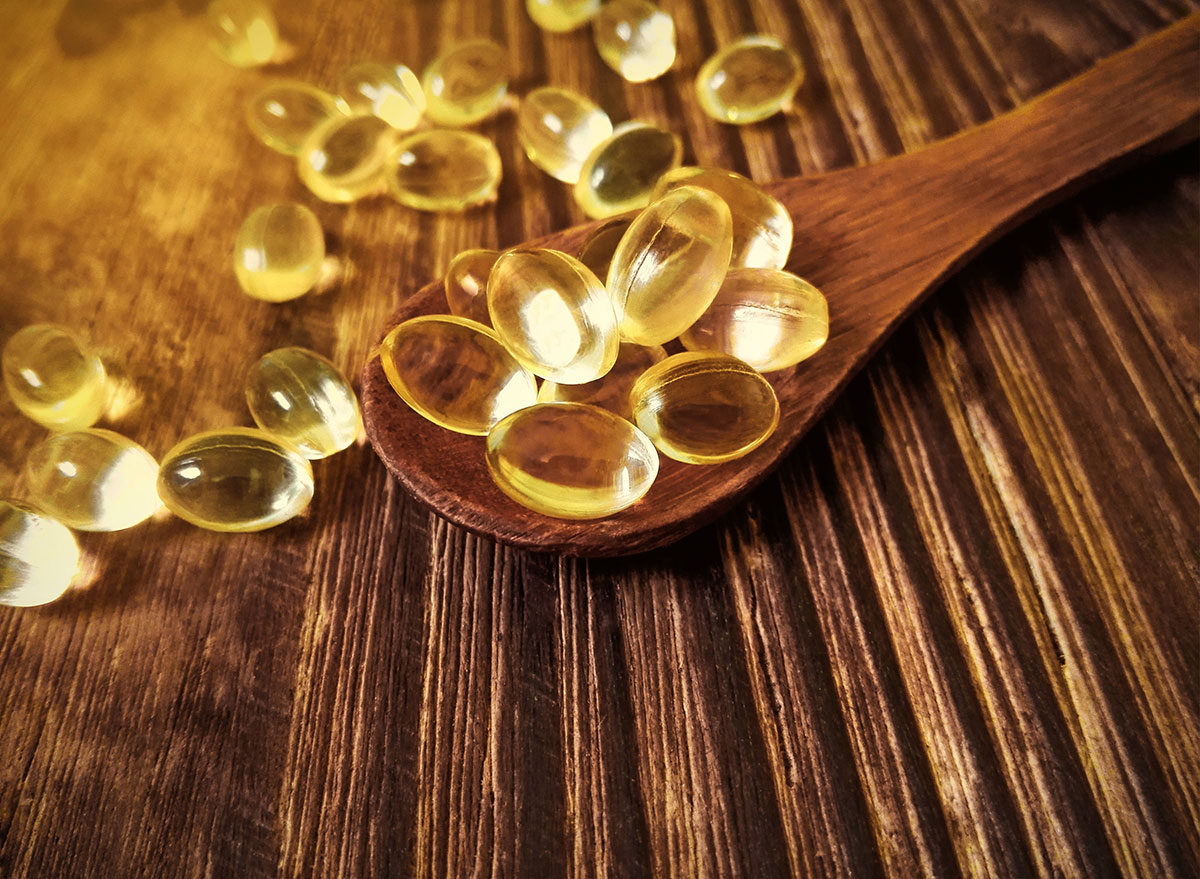
You may look into taking a vitamin E supplement for its antioxidant benefits, but sports dietitian Kelly Jones, MS, RD, CSSD, LDN warns that the vitamin can be harmful in large doses.
“Due to vitamin E’s role as an antioxidant, that also protects vascular cells, supplementation became popular among those Americans looking for a quick fix or some sense of ‘assurance’ that they’d be protected their heart. Unfortunately, Americans also tend to feel that more is better and research has shown that supplements don’t provide the value expected, while those providing 400 IU or more of the nutrient are associated with an increased risk of all-cause mortality,” Jones says.
“At higher concentrated levels on its own, vs. from food, vitamin E can act as a pro-oxidant rather than an antioxidant. It is wiser to obtain it from foods that provide other nutrients and antioxidants that work with vitamin E to protect us,” she says.
“First, aim for healthier fat sources by choosing more plant fats and fish fats versus animal fats. Almonds, peanut butter, sunflower seeds, trout, avocados, and olives are all examples of these fatty foods that provide fat-soluble vitamin E. Other plant foods such as spinach, mango, broccoli, and butternut squash also offer vitamin E, but it’s important to ingest them with a fat source so the E is actually absorbed,” says Jones.
Pre-workout supplements
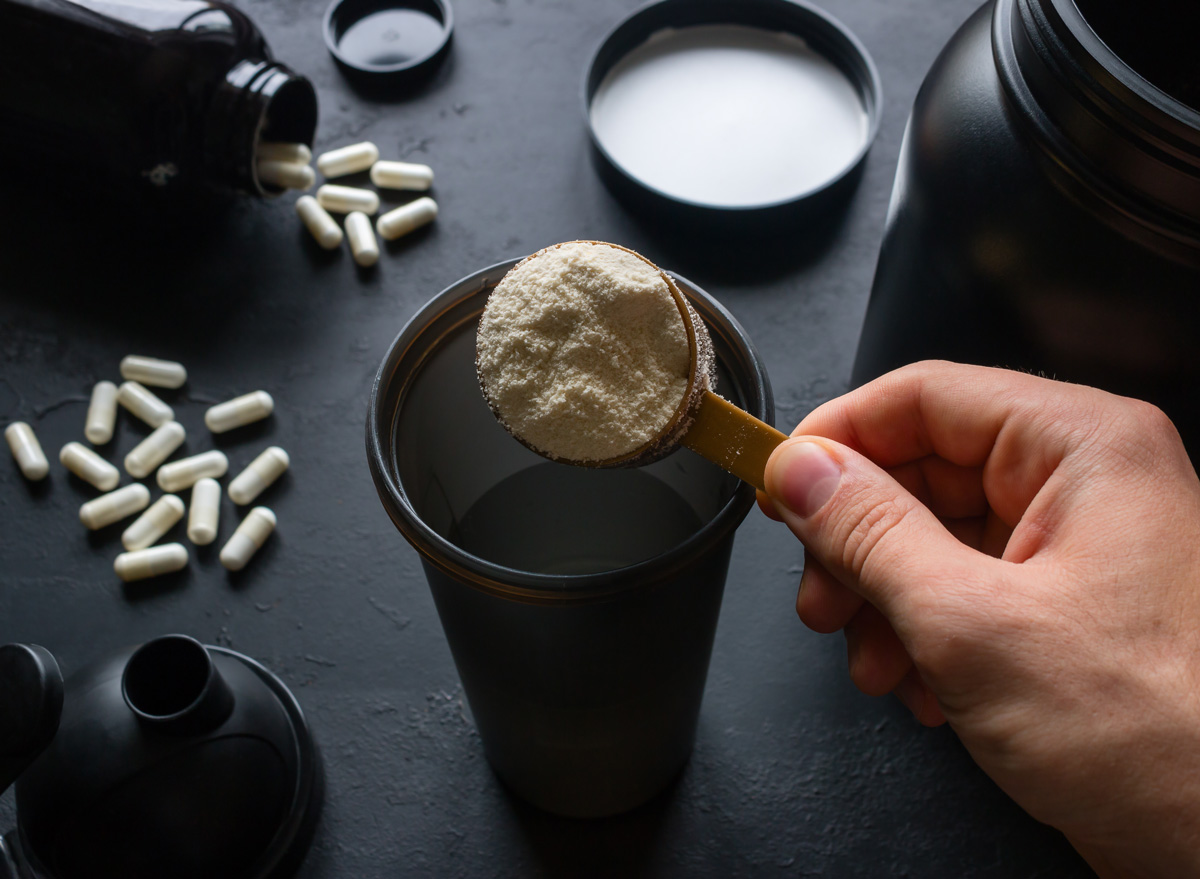
“‘Pre-workout’ supplements gained their popularity due to plenty of flashy promises in marketing on packages and product websites. While some research has shown the use of pre-workout stimulant blends to enhance anaerobic peak power, they’ve found no significant differences for upper body power, lower body power, or upper body strength,” says Jones.
“There may be even a lack of benefit to females looking for resistance training adaptations,” she adds.
It’s not just that pre-workout supplements can be ineffective that you should second guess taking the product. Jones warns that these supplements can be tainted with dangerous ingredients: “What’s riskier though is that pre-workout supplements are more likely than others to carry banned substances like prescription drugs and anabolic steroids. College-aged exercisers and athletes may be at greatest risk due to high use, so until there are better regulations, it’s important to choose supplements that are NSF certified for sport or Informed for Sport certified, as they are 3rd parties testing specific products for banned substances. Whether or not these supplements are effective depends on the product, use, and individual, but safety is most important,” says Jones.
If you want a jolt of energy without investing in a pre-workout supplement, Jones offers an alternative. “Benefits to power and cognition can be seen with caffeine alone from coffee, for example, without the risk of ingesting a banned substance.”
(Related: One Surprising Benefit of Drinking a Cup of Coffee Every Day)
Fat-Burning Supplements
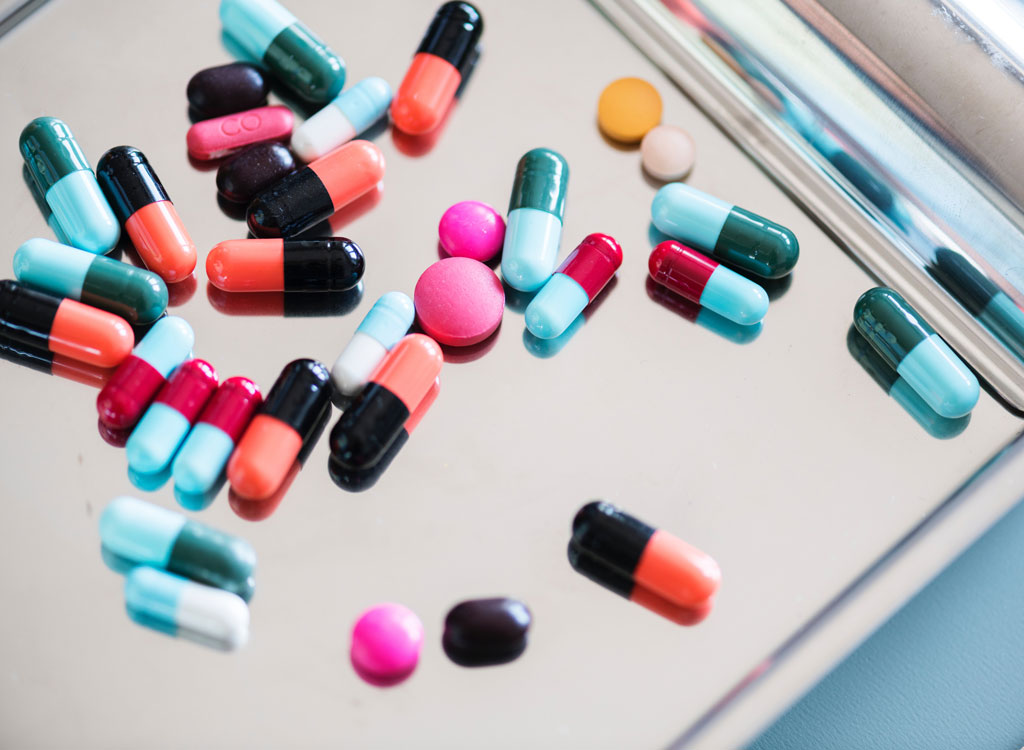
Want to melt away fat? You’re better off dieting and exercising than supplementing with these pills. “A fat burner is something that increases fat metabolism or calorie burning for a short period of time after you take it. Most of these supplements lack scientific data to support their use. Even if one study (often in a rodent) says the supplement has a statistically significant effect on increasing calorie-burning or fat metabolism, if you try to translate this to real life in a human it’s meaningless,” says sports dietitian Marie Spano, MS, RD, CSCS, CSSD, a Consulting Sports Nutritionist for the Atlanta Braves and lead author of Nutrition for Sport, Exercise and Health.
“I often give this example: if I gave you two pennies and I gave your friend one penny, I gave you significantly more money, but you certainly can’t do much with the amount I gave you,” she says.
Testosterone boosters
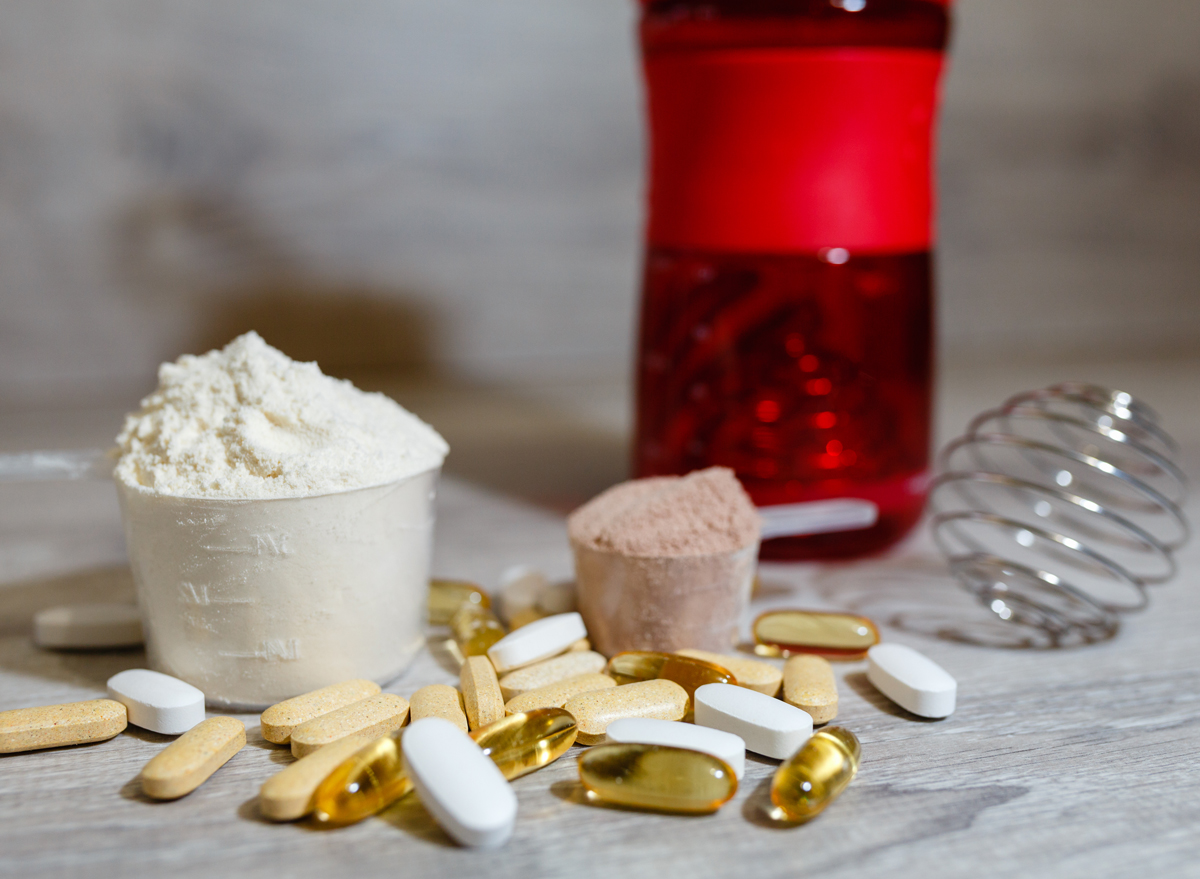
If you’re looking to feel stronger or boost your libido, testosterone boosters may seem enticing. While some may work, you should be aware that many can contain more than you bargained for.
“Testosterone boosters claim to ramp up your body’s production of testosterone. Men take them to feel stronger, build muscle, improve energy, improve recovery time, boost mood, and/or improve their libido. But we don’t know if they work. There are limited data in humans. Many of the ingredients used in these products have no data to support their use for boosting testosterone. Some actually lower testosterone! And this category of supplements has a higher likelihood of making you pop positive on a drug test due to adulteration with steroids or other prescription drugs,” says Spano.
Detox teas

“Detox teas supposedly help your body excrete built-up toxins and help you shed a few pounds so you feel and look your best. Indeed, they may help you feel a little lighter because they typically contain a mix of diuretics and laxatives. But don’t expect the results to last. Also, if you are generally healthy, your body can get rid of toxins on its own,” says Spano. Instead, just opt for regular tea. The drink has some fantastic benefits of its own: 12 Side Effects of Drinking Tea Every Day.